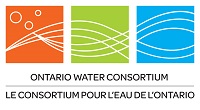People over the past century have been using water considerably faster than the population has grown, a University of Guelph scientist warned during a water conference Monday.
“We know the value of water when the well runs dry,” engineering professor and water supply security research chair Ed McBean said, adding pointedly the world is heading in that direction.
That’s why he welcomed emerging efforts to develop innovations in wastewater reuse through a new $2.5-million pilot-scale research, testing and demonstration site at the city’s wastewater treatment plant off Wellington Street, as well as a $1.1-million suite of analytical laboratories on campus to be operational by next March.
The facilities are part of the recently created Southern Ontario Water Consortium that brings together eight universities, governments and the private sector in a concerted effort to create and refine new water technologies, services and expertise for domestic and export markets.
“We have an opportunity . . . to export our products and services to the world,” David Ellis of the Waterloo-based GeoSyntec environmental consultancy told an audience that filled the atrium of the university’s engineering building. The audience included federal Minister of State Gary Goodyear and provincial Education Minister Liz Sandals.
Goodyear, minister of state for the Federal Development Agency for Southern Ontario, said future wastewater treatment breakthroughs hold the promise of new businesses and employment in this region by advancing water technologies.
Ishin Kaya, owner of Waterloo-based wastewater treatment firm Ekologix Earth-Friendly Solutions, said the challenge is being able to demonstrate for potential clients how well the technology works. He saw opportunities to do just that through the new consortium.
Guelph university research associate vice-president John Livernois listed some of the water research on his campus. Areas of interest include groundwater quality, pathogen detection, land use affecting water quality, Aboriginal water challenges and watershed issues.
Ellis said Canada is fortunate to have abundant, high-quality water but “we can’t grow complacent” with global competition in wastewater reuse mounting from countries such as Singapore. Promising areas include nutrient recovery.
Linda Gowman of London, Ont. water treatment firm Trojan Technologies said Canadians are wasteful, but that’s not necessarily bad news from the right perspective.
“It’s actually a terrific opportunity for innovation,” Gowman said.
Greg Westbrook of Rochester-based environmental engineering firm ClearCove Systems told the forum a hurdle to growth is the public’s lack of insight into wastewater as a worthy commodity.
“This industry here doesn’t have the respect it deserves. It’s an asset,” Westbrook said, praising the consortium’s collaborative approach to water research and development. “It’s time to earn respect. The opportunity is here.”

